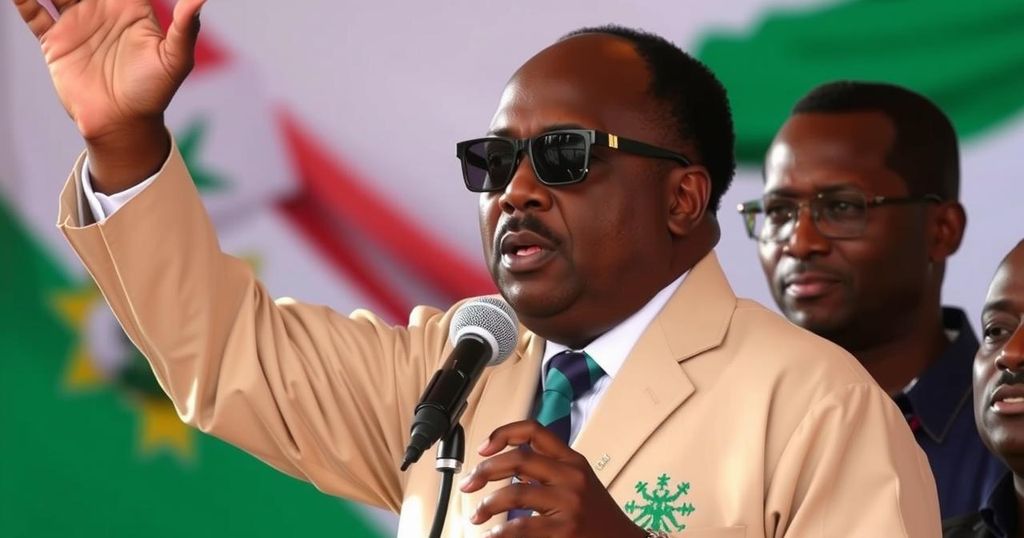Chad’s Ruling Party Gains Majority Amid Opposition Boycott in Elections

Chad’s ruling party won a majority in a parliamentary election boycotted by opposition parties. The Patriotic Salvation Movement secured 124 out of 188 seats with a voter turnout of 51.5%. This election represents a significant step in Chad’s ongoing political transition following Mahamat Idriss Deby’s military takeover in 2021.
Chad’s ruling Patriotic Salvation Movement secured a decisive majority in the parliamentary elections held last month, with provisional results indicating they won 124 out of 188 seats. This election marked the first parliamentary session in over ten years but was largely boycotted by the main opposition, which raised concerns over the legitimacy of the electoral process. Voter turnout was reported at 51.5%, according to Ahmed Bartchiret, head of the electoral commission.
The elections were seen as crucial in advancing Chad’s transition to democracy, initiated following the military takeover by Mahamat Idriss Deby in 2021 after the death of his father, Idriss Deby Itno, who had been in power for thirty years. Deby referred to the elections as a step toward decentralization, aiming to redistribute authority from the central government to regional and local levels.
The opposition, including more than ten political parties, termed the elections a “charade,” fearing they echoed previous flawed elections, notably the disputed presidential vote of the prior year. Their boycott effectively diminished the perceived legitimacy of the electoral results, and they have yet to comment on the outcomes of this vote.
This election occurred during a turbulent time for Chad, facing various security threats ranging from Boko Haram terrorist activities to a significant rupture in its longstanding military partnership with France, an essential ally.
Chad has been striving for political stability and democratization following significant political upheaval, most notably the military ascent of Mahamat Idriss Deby after the death of his father. The ruling party’s ability to secure a parliamentary majority amidst an opposition boycott highlights persistent challenges in governance, electoral integrity, and the public’s confidence in political processes. This election not only addressed the makeup of Parliament but also served as a referendum on Deby’s administration and its commitment to democratic principles, particularly in the face of national security concerns.
In summary, Chad’s ruling party has claimed a substantial victory in the parliamentary elections despite a boycott by the main opposition, raising doubts about the election’s credibility. The results are poised to strengthen the president’s regime while offering insight into the ongoing struggles of political transition amid security challenges. The opposition’s rejection of the election process underscores the ongoing contention within Chad’s political landscape.
Original Source: abcnews.go.com







